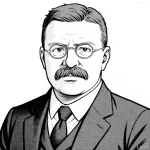“I dote on his very absence.”

- April 26, 1564 – April 23, 1616
- Born in England
- Playwright, poet, actor
table of contents
Quote
“I dote on his very absence.”
Explanation
This quote from Shakespeare’s Twelfth Night expresses a deep and somewhat paradoxical affection for someone’s absence. “I dote on” means to have an intense affection or fondness for something or someone. “His very absence” refers to the person being away or not present, and the speaker reveals that they actually feel a kind of love or attachment to the fact that the person is absent. This could suggest that the absence heightens their feelings or allows them to idealize the person more, as absence often leads to greater longing or romanticized thinking about the person who is not there.
In modern contexts, this quote speaks to the complexity of emotions in relationships, especially when distance—whether physical or emotional—creates a sense of idealization. It can be relevant in situations where someone may have a strong emotional attachment to someone who is not present, and their absence actually intensifies the feelings of affection or desire. This often happens when we miss someone and imagine them in an idealized way, even though their presence might not always be as perfect as we perceive it in their absence.
Ultimately, this quote highlights the tension between presence and absence in relationships. It suggests that sometimes, distance or absence can make the heart grow fonder in a way that presence does not, and that emotional attachment can be influenced by the absence of someone, creating a sense of longing or romanticized affection.
Would you like to share your impressions or related stories about this quote in the comments section?




